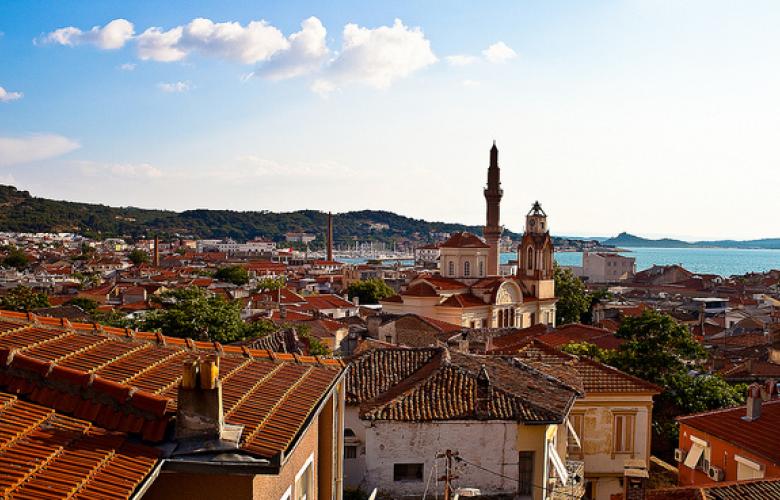Buying a property in Turkey
Buying a property in Turkey
An expat’s guide to purchasing real estate where East meets West.
This article is intended as a preliminary guide only and refers to some but not all elements required to consider in detail prior to starting any property dealings or due diligence. Property dealings are often complex, especially in foreign countries and we highly recommend you seek independent professional advice... read more...
Turkey has become an increasing attractive option for real estate buyers whether it is for a place to call home or as an investment. With with almost 7,000 kilometres of Mediterranean, Aegean and Black Sea coastline, Turkey has a variety of landscapes and attracts many overseas tourists. The city of Istanbul, the Roman city of Ephesus plus beach resort towns such as Bodrum and Antalya are among the most popular destinations. According to the Ministry of Culture and Tourism, Turkey is most popular with visitors from Germany, the UK and Georgia. It has a population of around 75 million people with diverse cultures. Value for money is a good incentive as well as the high capital growth potential. After owning a property for four years, there is no capital gains tax applicable. And with its rapidly growing infrastructure, the economy, tourism and property markets are all on the rise.
Who can buy property in Turkey?
Turkey allows foreign ownership in Turkish property under the reciprocity principle, meaning countries that allow Turkish citizens or legal entities to own property in their country are allowed to acquire property in Turkey. Citizens of most EU countries (except for Belgium, Cyprus, Czech Republic and Slovakia), the United States, Canada and other countries in Asia, Latin America and Africa can freely purchase properties in Turkey.
Find a full list of who can and cannot buy property in Turkey here.
Where to buy in Turkey
Turkey offers options from classic villas or stunning locations with sea views. According to statistics published by Turkey Homes Istanbul, Antalya, Fethiye, Bodrum and Side are the most popular holiday home destinations in Turkey. For more on these areas, click here.
According to Property Turkey, if you choose to rent out your property in Antalya, Fethiye, Kalkan or Bodrum, it could deliver in excess of 6% rental returns after all expenses paid. Property sales in Turkey generally happen quickly, and the whole process can be completed from 6 weeks to 3 months.
How to buy a property in Turkey
Once you have selected a property, and have you finances organised, you must:
- Check the Title Deeds match the details at the Land Registry Office
- Ensure the property is debt free, and also has an Iskan (habitation certificate).
- Make an offer through the agent
- Have contracts detailing terms and conditions as well as payment plans drawn up by your independent lawyer and notarised
- Put down a deposit (usually 10-25%)
- Have a Military Check completed (see below), which can be filed by your agent
- Buy DASK (earthquake) insurance, which is renewable on a yearly basis
- Sign the Tapu (title deeds) which can be done by the purchaser or solicitor or third party to sign on your behalf
- Change utilities including electricity and water into your name
Necessary Documents
- Title deed of the property or information on village/district, block, building plot, detachment.
- Identification document or passport (Together with its translation).
- Property Value Statement Document to be provided from the relevant municipality.
- 1 photo of the seller, 2 photos of the buyer (photos to be taken within last 6 months, 6x4 size)
- Certified translator and 2 witness if one of the sides cannot speak Turkish
- The original or certified copy of the power of attorney and its approved translation if the power of attorney is prepared abroad. Powers of attorney are issued by the Turkish Embassies or Consulates.
What is a Military Check?
Foreigners can buy up to 30 hectares according to the Turkish Ministry of Foreign Affairs, and it must not be located within a military or security zone. The land also cannot amount to more than 10% of a designated district. Title Deeds must be checked by the Turkish Military Headquarters.
How much does it cost to buy in Turkey?
In addition to the price of the property, there are purchase costs including a lawyer, notary, taxes, and relevant fees to take into consideration. Lawyer and translator costs can vary depending on who you choose. According to Turkey Homes purchasing costs should amount to roughly 8.5% to 9%.
Purchasing Costs of Buying Property in Turkey
- Lawyer fees vary
- Translation services need to be officially registered and licensed. Fees may be charged by the hour or may be a set fee.
- Real Estate Agent Fee: 3% of the purchase price, according to Turkey Homes
- Transfer Deeds Tax, 4.4%, usually split 50/ 50 between the buyer and seller, which is based on the assessed value, not the purchase price. Every council has a list of estimated property values and they will use this to calculate the tax.
- Tapu Registration (Title Deeds): US$125
- Notary Fees: US$375
- DASK Insurance, cost depends on the square meterage of your property. For example: DASK for a 70 square metre two-bedroom apartment is roughly US$73 a year.
- Military Checks: US$500 (but this fee is soon to be abolished.) A formal application is made to the government to check the property you are buying is not within a military zone and that you as a foreigner are within your legal limits of assets you can buy.
Based on a property sale of US$125,000, here is an example of the one-off costs of purchasing property in Turkey.
- Purchase Tax- US$5000 (Generally lower - assessed value, not purchase value)
- Buyers Fee- US$3750
- Solicitors Fee- US$1250
- Notary Fee- US$125
- Gas & Electricity- US$250
- Military Application- US$500 (to be abolished soon)
- Total- US$10,875
Financing a mortgage in Turkey
Finance can be arranged through overseas lenders if you have assets overseas. Many investors with assets overseas (property, income, investments) have taken advantage of favourable international interest rates. For example, someone with property in the UK may be able to release equity to a maximum of 80% of the value of their property (less any outstanding mortgage), to finance all or part of their property purchase in Turkey.
If you choose to apply for local finance, Turkey’s banks offer mortgages to foreigners with varying terms and conditions, depending on the bank. Mortgage Brokers such as Mortgage for Turkey can find banks who will lend to foreigners, compare rates and recommend loans to suit your circumstances. Generally, they offer 50 to 65% of the purchase price, so you need to source funding for the rest of the acquisition.
Currency exchange considerations
You may be working out your budget in the currency of your home country, but it is essential to remember that the value of the property is tied to the Turkish lira house index. As currency exchange rates fluctuate, it is worth getting into the habit of watching the exchange rate to be aware of how your property investment is performing.
Smart Currency Exchange, the international payment specialist can help you with the process by getting you the best rate and to save on high transfer fees typically applied by banks.
Scams
According to the UK Government website, numerous property disputes were reported to British embassy and FCO over the years. The common problems are: banks confiscating properties due to builder/owner’s bank debts, properties sold to multiple clients, unfinished property deed transactions, fraud by international or local property services. We highly recommend prospective buyers to take precautions before any purchase.
Article sources:
Republic of Turkey Ministry of Foreign Affairs
See also:
Glossary of terms for buying property in Turkey
This article and the above linked artciles are not complete and are intended as preliminary guides only. These guides refer to some elements to consider prior to starting any property dealings or due diligence. Property dealings are often complex areas, especially in foreign countries and we highly recommend you seek independent professional advice... read more...




